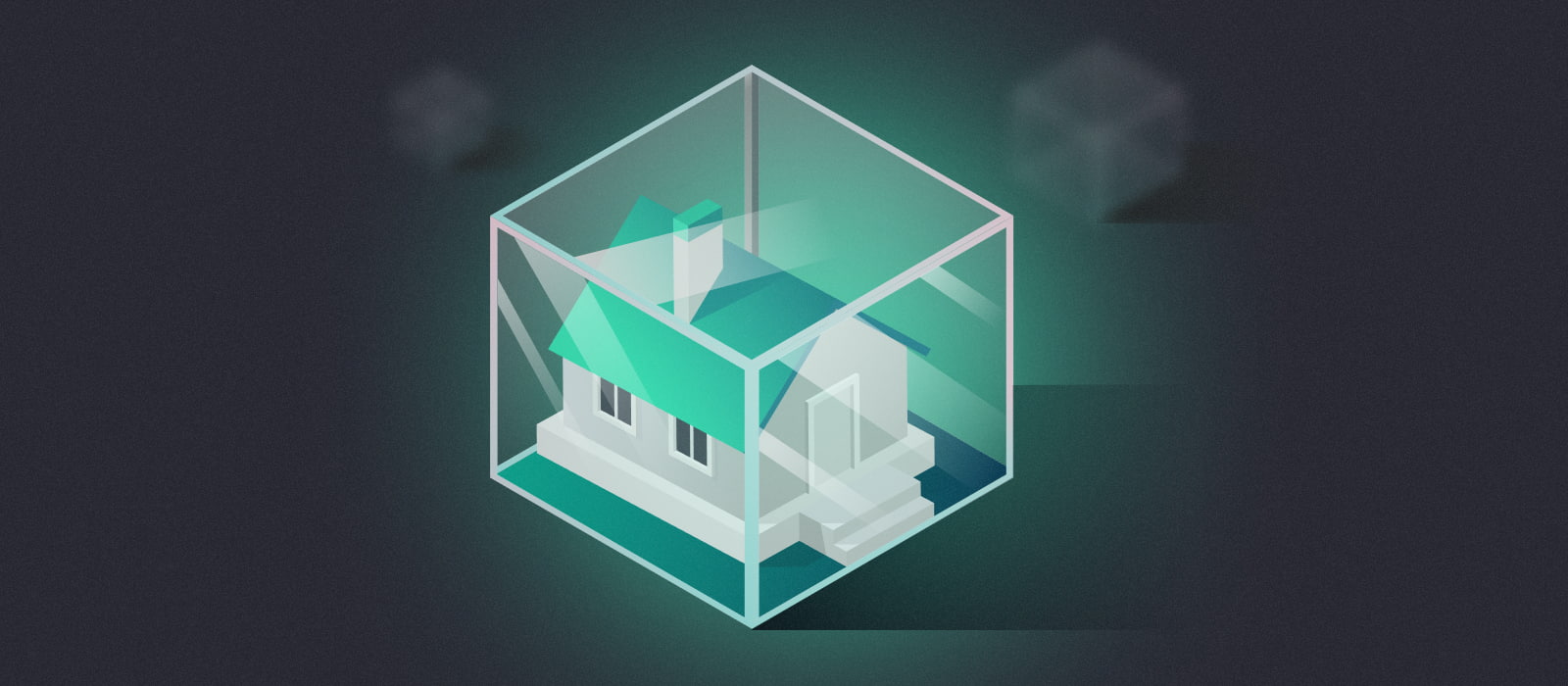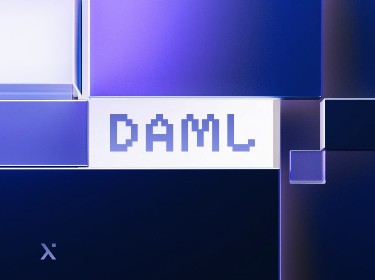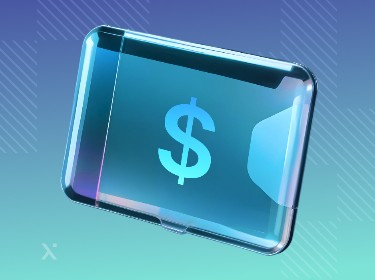It seems that blockchain fits in almost every industry, even real estate. The technology promises to simplify typically complex processes, enhance reliability, and open up the real estate market to a wider audience.
According to the research, the global real estate market will reach 6.13 trillion by 2030. This number is only going to increase as the world population continues to grow and urbanize. Today, 56% of the world’s population, or 4.4 billion people, live in cities.
However, such a gigantic industry operates surprisingly old-fashioned. Buying a house, selling one, or just trying to get a mortgage feels more like a hard mode quest thanks to all those fees, intermediaries, and siloed data.
Luckily, leveraging the blockchain in real estate can tackle these pain points by bringing in some much-needed efficiency and transparency.
In this article, we will discover the most promising blockchain applications in real estate and the benefits this technology brings to the table.
What are the benefits of blockchain in real estate?
![]()
When used in real estate operations, blockchain offers several significant benefits, namely:
Transparency
Blockchain increases the clarity of real estate operations by recording all transactions and property-related data in a tamper-resistant and immutable ledger. No one can alter this data without consensus from the network participants. This is especially valuable for businesses utilizing enterprise development services for the real estate industry, as it allows for the creation of secure and transparent property management systems, accessible to all stakeholders.
Moreover, the technology makes it possible to update information in real time so that stakeholders can access the most up-to-date data about immovables, reducing delays and errors associated with outdated records.
Efficient fraud prevention
Blockchain in real estate allows to easily verify property ownership, mitigating fraudulent activities like double-selling or document forging. Anyone with access to the blockchain can independently verify the current owner. This is where tokenization services for the real estate industry come into play, by representing property ownership as digital tokens on the blockchain, making transactions more secure and transparent.
Public accessibility
Blockchain technology in real estate facilitates a wider availability, allowing anyone to access property data. This way, interested parties, such as potential buyers, investors, and regulatory authorities, can review property records without relying on intermediaries or facing information asymmetry.
Automation
Applied in the real estate industry, blockchain can streamline various repeating operations and automate processes. It is possible due to smart contracts that execute certain actions when predefined conditions are met. In real estate, it can be payment processing, ownership titles transfer, and more.
This automation not only speeds up transactions but also reduces the likelihood of human error and fraud, leading to a more secure and efficient property market. Imagine combining this with AR/VR services for the real estate industry, smart contracts could automatically release funds once a buyer completes a virtual property inspection and confirms their purchase in the metaverse.
Our smart contract development services + your goals and vision = maximum efficiency of your business operations
Faster transactions
Blockchain integration services can help allow real estate purchases with cryptocurrencies. These payments are typically processed much quicker than traditional bank transfers that may take several days.
On top of that, smart contracts also facilitate quicker transaction settlement, eliminating the need for intermediaries.
Improved liquidity
Since blockchain in real estate enables property tokenization and fractional ownership, it can increase the liquidity of real estate assets, making them more affordable for a larger group of investors.
Blockchain further contributes to liquidity rise by enabling cross-border transactions and mitigating issues like currency exchange rates and international payment systems. Consequently, properties that might otherwise be confined to local or national markets can attract international interest.
Find out how NFTs make fractional asset ownership possible
What blockchain applications in real estate are there?
![]()
There are several blockchain applications in real estate, the most promising being data management, property tokenization, property management, mortgage and loans, and metaverse property.
Let’s take a look at them.
Data management
Blockchain enables secure and decentralized storage, management, and sharing of property-related data. All information about an asset, including repairs, upgrades, occupancy rates, and financial performance, may be found on the ledger and updated in real time.
This facilitates better asset performance analysis.
Furthermore, the use of blockchain in real estate allows for simplified regulatory compliance.
By keeping records on blockchain, real estate and companies can seamlessly provide supervising authorities with full and most relevant property data, without the hassle of collecting the papers and repetitive authenticity verification.
Smart contracts can optimize the compliance process even further by automating reporting, audits, and compliance checks.
Make sure your smart contacts are flawless and 100% secure with our audit services
Property tokenization
The use of blockchain in real estate opens up opportunities for asset tokenization services. It means that a building can be represented as non-fungible tokens (NFTs), with either a single token symbolizing the entire building or a collection of tokens standing for its fractions.
Tokenization services greatly democratize real estate investment by lowering the barriers to entry. Investors can buy fractional tokens with smaller amounts of capital, enabling a more diverse range of individuals to participate in real estate investments that were previously out of reach.
Since real estate tokens can represent fractional ownership, investors can choose to invest smaller amounts in multiple properties rather than concentrating all their capital in a single, high-value property. This strategy helps mitigate the risks associated with a property’s performance or market fluctuations.
To ensure a seamless blockchain integration into real estate tokenization, blockchain consulting services are essential. These services help navigate the complexities of smart contracts, token issuance, and compliance, ensuring a secure and transparent investment process for all stakeholders.
Meet Obito — a Bitcoin-based asset tokenization platform for financial bonds, real estate, intellectual property, and collectibles
Property management
With the help of smart contracts, blockchain can enhance and even completely automate property management processes, including rent collection, lease agreements, and maintenance requests.
Blockchain in real estate also empowers tenants to make rent payments using crypto or stablecoins, thus avoiding the complexity of international transactions and reducing processing fees while keeping a clear payment record.
Mortgage and loans
With blockchain, loan lenders can simplify the process of assessing and verifying a borrower’s information, such as credit scores, income, and employment history. This can streamline the underwriting process and reduce the time and paperwork required to approve loans.
Plus, with borrowers’ identities and property titles stored on the blockchain, it is very difficult for malicious actors to manipulate or steal this information, significantly reducing the chances of impersonation and other fraud.
Besides, smart contracts can prove very useful for managing mortgages and loans by automatically collecting payments, calculating interest rates, and enforcing penalties. This way, borrowers and lenders can avoid intermediaries like banks and reduce the risk of disputes.
In addition, every mortgage-related transaction can be recorded on a blockchain, providing an immutable and transparent audit trail that can be easily verified if any of the involved parties have questions or doubts.
Metaverse property
Blockchain has paved the way for the development of a brand new concept — the metaverse. It is a decentralized digital universe inhabited by avatars. And of course, these meta-dwellers need residential, commercial, and recreational properties. Partnering with an NFT development company can help bring these virtual assets to life, ensuring that each property is not only unique but also securely tokenized.
Each virtual property or land parcel exists as a unique digital asset, an NFT. Metaverse landlords can develop and customize their properties by creating virtual structures, buildings, or experiences. These creations can range from virtual homes and businesses to gaming experiences and interactive art installations.
If you’re planning to create a metaverse property, check out our metaverse development services.
Learn more about metaverse real estate and its use cases in our article
Overview of real estate blockchain projects
Blockchain certainly has the potential to revolutionize the real estate sector, and some projects are already at the forefront of this transformation.
Here is the closeup of four innovative blockchain in real estate solutions.
RealT
RealT platform enables the tokenization of real estate on the Ethereum blockchain and Gnosis Chain and can be accessed by users from almost all countries.
Since RealT allows fractional token ownership, users can invest any amount that fits their needs. The immovables are represented as RealTokens, $50-$150 per token.
The project has a team of experienced real estate investors who choose the property for the RealT marketplace. The tokenized immovables range from large apartment buildings in popular areas to low-cost single-family homes.
The project has already tokenized more than 970 buildings located across the United States in places like Detroit, Cleveland, Chicago, and Toledo.
Blocksquare
Blocksquare offers a suite of Ethereum-based solutions and a blockchain API, which allows companies to tokenize property, launch their investment platforms, and conduct tokenized real estate deals online.
Blocksquare’s real estate tokenization protocol can convert any immovables into up to 100,000 ERC-20 tokens, allowing for fractional ownership.
DocFlow
DocFlow, developed by PixelPlex, is a blockchain-powered application designed to streamline document management across various sectors, including real estate.
This solution enables the digitalization and secure storage of all paperwork on an immutable ledger, effectively blocking any alterations to or unsanctioned transfer of sensitive documents.
DocFlow uses the capabilities of smart contracts, encryption, and multi-tier role-based and code-based access mechanisms to guarantee uncompromised data security and authenticity.
With DocFlow, all parties involved in a real estate operation, from buyers and sellers to agents and lawyers, have 24/7 access to necessary documents. This around-the-clock availability not only accelerates the deal-making process but also enhances the transparency and collaboration essential in real estate dealings.
Propy
Propy is a real estate transaction management platform powered by blockchain and AI. The solution streamlines the buying and selling process by leveraging smart contracts to automate transactions, reduce paperwork, and minimize the risk of fraud.
With Propy, users can efficiently list immovables for sale, negotiate, sign contracts, and transfer property titles. The solution allows real estate agents, buyers, and sellers to easily track the progress of their transactions in real time.
Explore our versatile portfolio of top-notch real estate projects
So, what is the impact of blockchain on real estate?
With many game-changing blockchain applications in real estate, it is evident that the technology will continue gaining traction in the industry.
Blockchain in real estate will upgrade the experience of both well-versed investors and newcomers by simplifying complex transactions, offering more transparent and secure investment opportunities, and enabling access to a wider range of properties through fractional ownership.
Thinking of integrating blockchain elements into your real estate solution or assessing the feasibility of a whole new project?
Our blockchain development company and real estate software development company experts will readily assist you in building a robust and secure solution.
With a proven record in creating outstanding blockchain-based applications and extensive expertise in enterprise blockchain development, we’re well-equipped to expertly address your unique business needs and requirements.
Contact us and let’s discuss our collaboration.




